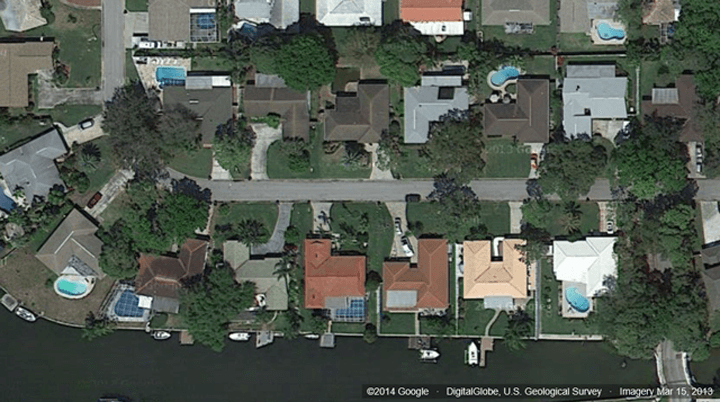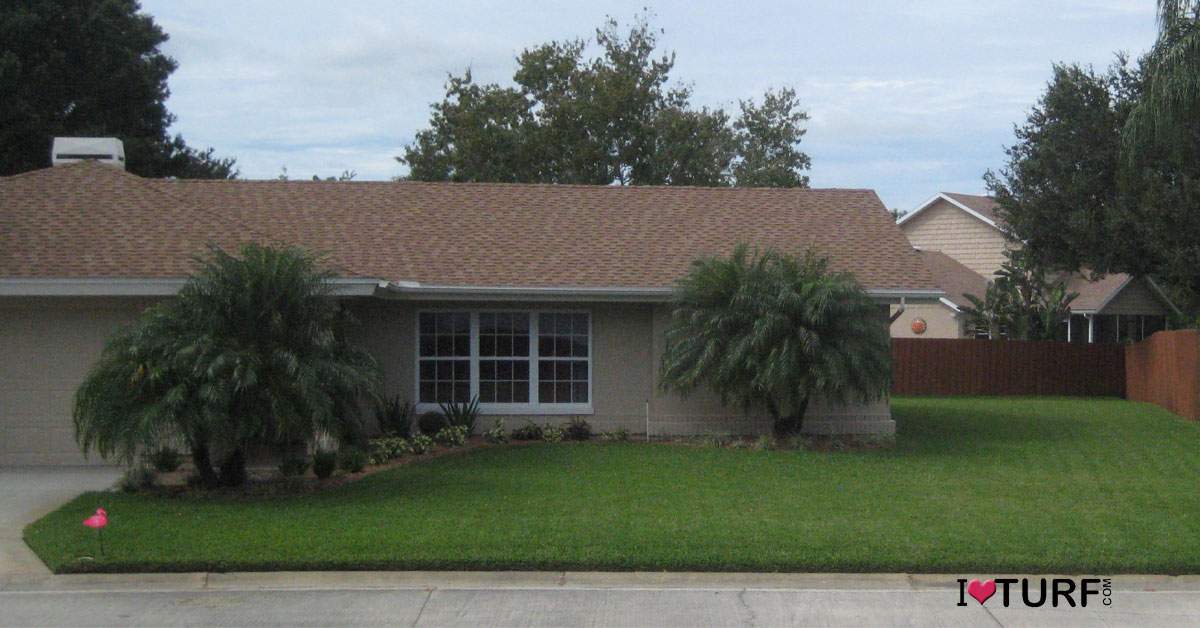
Turf Recycles by “Sheet Composting”
A healthy lawn is capable of recycling tons of organic and inorganic pollution into plant nutrients. The recycling process of turf was studied and documented by the father of organic farming - Sir Albert Howard. Sir Albert Howard observed that turf efficiently recycled minerals and organic matter by enzymatic digestion in a process he called "sheet composting".
Every healthy lawn is a sheet composter - a solar-powered waste recycling center. Each healthy lawn is capable of composting tons of organic and inorganic materials caught in the turf canopy - leaves, bird droppings, animal feces, dust, soot, pollen, etc. - all recycled into plant food using solar power (and it looks great to boot).
Considering composting? Think healthy lawn! The effect of thousands of small healthy lawns in Pinellas County is a cleaner healthier environment.
Bare ground, rock yard, roads and parking lots do not sheet compost. The dust, pollen, and pollution that collect on these surfaces are swept away by the slightest breeze into the air we breathe or runs downhill to the nearest body of water during the next thunderstorm.

A Natural Water Purifier
Rain is not as pure as you think. On the way down from the clouds, the rainwater absorbs airborne pollution - solids such as soot and pollen, as well as gases such as carbon dioxide and sulfur are added to the raindrop. As the raindrop continues, it strikes a surface - roofs, wires, leaves, etc. – and collects whatever was on the surface - bird droppings, dust, and chemicals - and carries it to the Earth.
That same rain droplet – full of pollution - that falls on a lawn is filtered by the lawns fibrous root system, purified by organic cleaners and sterilized in zero oxygen zones. The roots of a healthy lawn form a fibrous mat - much like a water filter in your house - capturing the small particles and holding them in the root zone to be composted. Part of the fibrous roots system is a community of organisms and minerals that are a biological filter removing chemicals absorbed into the rainwater. Finally, the water percolates below the roots into a zero-oxygen zone where biological activity stops and the water becomes free from bacteria and parasites.
We Need Urban Turf in Florida
The effect of thousands of small healthy lawns in Pinellas County is rainwater that is filtered, purified and sterilized on its way downhill to the nearest body of water.
Bare ground, rock yards, roads and parking lots do not filter, purify or sterilize. Rain that falls on hard surfaces runs downhill to the nearest body of water as polluted water.
But Wait, There's More!
A healthy lawn cools the air, prevents erosion and mitigates the activities of urban living from impacting the population's health and welfare. The cooling effect of a healthy lawn lowers power consumption and reduces carbon emissions. Soil stabilization is important in keeping an urban environment healthy and waters sediment free. Without a healthy lawn surrounding a home, human activity turns into pollution running directly into local waters. A healthy lawn filters and recycles everything from pet wastes and organic wastes to reducing dust and pollen in and around the home.

Manmade is a curse to the Environmentalists
Yet the greenies continue their efforts to eliminate healthy lawns. They believe that the "manmade lawn" pollutes – voicing their disgust with the noise and fumes caused by people mowing their lawns. They sit in the comfort of their air-conditioned oversized home sending emails to political leaders demanding restrictions on lawn watering, fertilization, and pest control. While just outside their comfortable home is their "xeriscape" of sparse straggly plants sitting in dust and pollen covered rotting mulch waiting for the next puff of air or driving thunderstorm to bring the dust and pollen to your home.

Humans Are Naturally Drawn to Lush Green Environments
We are instinctively drawn to lush green areas - parks, golf courses, and lawns. These areas represent safety, comfort, food as well as a pleasant place to live and relax. We instinctively know these areas are good for us. That is why we surround our homes with healthy lawns because we know: A healthy lawn is good for us and good for the environment.
If You Can, You Should
A healthy lawn is not for everyone - it does require effort and money. But for those who want a healthy lawn, for whatever reason, they should be allowed to have a healthy lawn - free from onerous restrictions or stigmas. This would be good for you and good for the environment.
Thank Your Neighbor for Keeping a Healthy Lawn
The next time you see your neighbor - the one down the street with the healthy green lawn - thank them for the effort and expense of making your life better and ask them to help you grow a healthy lawn.
As for the environmentalists, be thankful there are more healthy lawns and less "xeriscape"




